| | | | | | 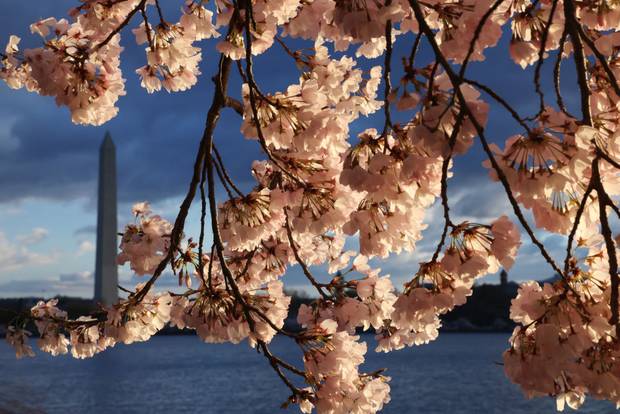 The cherry blossoms are out in Washington, DC. Alex Wong/Getty Images | | | The wackiest headlines from the week as they would appear in a Classifieds section. Careers BERGHAIN GUIDE: Berlin's legendary techno scene has been added to the German national registry of Intangible Cultural Heritage. Put on your leather harnesses and let's head to the coolest museum. HIGH-ELEVATION BABYSITTER: Imagine a fifth grader's fun fact being that they've been to Everest Base Camp. Some kids as young as two years old have made the climb carry. HERTZ CEO(S): You have a decent shot at becoming the next head honcho of the rental car company, though you might not last long: Hertz is replacing its CEO for the fifth time in four years. The only requirement is losing at least $245 million a quarter, something the company seems to enjoy doing. Personal TAKE THE LONG WAY: Lyndon, Vermont, the "Covered Bridge Capital of the Northeast Kingdom," is begging box trucks to stop smashing into its 140-year-old Miller's Run bridge. Drivers blame GPS for sending them in the path of the bridge, but the real culprit is 1880s builders who had never seen anything taller than a horse. RUIN UR CHILDHOOD: The filmmakers who made the low-budget horror movie Winnie the Pooh: Blood and Honey said they'll be filling even more beloved children's stories with festering stab wounds and indulgent gore in what they're calling the "Twisted Childhood Universe." For sale STRATOSPHERIC MAINS: Luxury space travel company SpaceVIP brought in a chef with two Michelin stars to make a $495,000 meal hosted aboard a space balloon in the stratosphere. The dining experience includes a view of Earth from space so the chef can point to the exact spot your sea bass was caught. CHIPS ANEW! The 60-year-old cookie brand Chips Ahoy! is sick of hearing about how much you love Milanos and Oreo thins. The company is unveiling a new cookie with better chocolate chips.—MM | | | | | | Tired of receiving sus messages from numbers you don't know? You're not alone. In 2023, 2.6m people were victims of fraud and around 1m were targets of identity theft, according to a new FTC report. Scamming is, unfortunately, here to stick around. Enter Incogni—the personal information removal service that'll keep your data safe n' secure. What exactly will Incogni do for you? They can: - Limit public access to your info.
- Lower your risk of identity theft.
- Keep your data from being sold.
And get this: Right now, they're offering an absolutely spam-busting deal (like 55% off) exclusively to Morning Brew readers. Get a move on it and secure your stuff. | | | | Queensland Symphony Orchestra on Facebook The color. The lighting. The composition. It's all bad because this isn't a real photograph taken by a human being. This AI-generated crime against the arts is from a Facebook post by Australia's Queensland Symphony Orchestra promoting a concert in February. The QSO came under harsh criticism for this assault on photography from just about everywhere, including the country's media and arts union and orchestra members themselves. The QSO did not apologize but released a statement that read in part, "At QSO, we encourage exploration, innovation, experimentation and the adoption of new technologies across all facets of the business." They do not, however, seem to encourage hiring human photographers to take photos of human beings.—DL | | | ImgFlip Here are some illuminating scientific discoveries from the week to help you live better and maybe even chill out.  "Blowing off steam" isn't a good way to calm down. Punching your pillow, doing cardio, and screaming into the void are way less effective for managing anger than deep breathing, yoga, and other relaxing practices, according to a review of 154 studies on physiological arousal and anger. Across the board, mindfulness practices that can lower your heart rate helped people chill out, while common stress-relief activities that get your blood pumping, like jogging, actually had an adverse effect. But don't quit your rec league: Playful group sports and some exercise classes did effectively calm people down. "Blowing off steam" isn't a good way to calm down. Punching your pillow, doing cardio, and screaming into the void are way less effective for managing anger than deep breathing, yoga, and other relaxing practices, according to a review of 154 studies on physiological arousal and anger. Across the board, mindfulness practices that can lower your heart rate helped people chill out, while common stress-relief activities that get your blood pumping, like jogging, actually had an adverse effect. But don't quit your rec league: Playful group sports and some exercise classes did effectively calm people down.
 Parrots like playing on iPads with their tongues. The colorful birds known for talking back are too smart to sit still without stimulation, so many owners set them up in front of a children's tablet game and watch their pets play—something that could enrich the parrots' brains, according to a new study. Twenty domesticated parrots learned to play a touch-screen game that had them tap circles with their tongues, and not only were they decent at it but they appeared to enjoy it too. The study's researchers hope the findings will contribute to the development of parrot-specific video games that could boost the birds' quality of life. Parrots like playing on iPads with their tongues. The colorful birds known for talking back are too smart to sit still without stimulation, so many owners set them up in front of a children's tablet game and watch their pets play—something that could enrich the parrots' brains, according to a new study. Twenty domesticated parrots learned to play a touch-screen game that had them tap circles with their tongues, and not only were they decent at it but they appeared to enjoy it too. The study's researchers hope the findings will contribute to the development of parrot-specific video games that could boost the birds' quality of life.
 Teens are scientifically confirmed to smell like cheese and urine. Scientists in Germany have classified the chemical compounds that make us smell differently throughout our lives, starting with the ones that cause babies to smell like flowers, soap, and violet. It's all downhill from there: Puberty leads to the heightened presence of certain compounds that cause teenagers to give off scents of sweat, urine, sandalwood, cheese, goat, and wax—aka a typical locker room. The researchers got these results by sewing cotton pads into kids' and teens' pajama armpits, extracting the chemical compounds present on the pads in the morning, and then having a trained smeller…identify the smells.—ML Teens are scientifically confirmed to smell like cheese and urine. Scientists in Germany have classified the chemical compounds that make us smell differently throughout our lives, starting with the ones that cause babies to smell like flowers, soap, and violet. It's all downhill from there: Puberty leads to the heightened presence of certain compounds that cause teenagers to give off scents of sweat, urine, sandalwood, cheese, goat, and wax—aka a typical locker room. The researchers got these results by sewing cotton pads into kids' and teens' pajama armpits, extracting the chemical compounds present on the pads in the morning, and then having a trained smeller…identify the smells.—ML
| | | Cate Gillon/Getty Images The Great Recession of 2008 had a lot of downsides: People lost homes, jobs, and retirement savings, had their careers derailed, and were forced to learn what the heck synthetic collateralized debt obligations are. But according to recent research, it also made people in the US live longer. A working paper for the National Bureau of Economic Research by economists from MIT, the University of Chicago, and McMaster University estimates: - The age-adjusted mortality rate for Americans dropped by 0.5% for every 1 percentage point rise of the unemployment rate in their area from 2007 to 2009. Based on the change to the national unemployment rate, that suggests the annual mortality rate got 2.3% smaller overall.
- This means "the Great Recession provided one in twenty-five 55-year-olds with an extra year of life."
- The dip in mortality rates cuts across gender, race, and ethnicity, but it was biggest for people 25+ whose education ended with a high school diploma and for people over 65, who tend to have higher death rates.
The researchers, a team led by MIT's Amy Finkelstein, found that this impact on the mortality rate was immediate and lasted at least ten years. If that surprises you, you're in good company: Despite some previous research linking recessions with longevity, 50% of a group of 300 experts surveyed by the researchers said they expected that the economic downturn would have caused an increase in the mortality rate. But the research team's review of county-level health and economic data for all 50 states and Washington, DC, from 2003 to 2016 suggested otherwise. Why is a bad economy good for your lifespan? To find out why economic devastation kept people ticking, the researchers first ruled out some options. They found: - It wasn't healthier habits: Unemployed individuals weren't using their extra free time to exercise more or cutting down on smoking or drinking to save cash.
- Germs still spread: Even though people were congregating less in offices and restaurants, infectious illnesses like the flu still found them.
- Older people weren't getting better care: While older people benefited more than younger ones, it wasn't because nursing homes were able to staff up.
So, how did the recession extend people's lifetimes? Mostly by decreasing air pollution, according to the paper. As we saw in 2020, air quality goes up when people stop driving to work, offices use less power, and factories slow down output—all things that also happen in a recession. And the researchers determined that the counties with the most job losses also saw the biggest boost to the cleanliness of their air, as shown by the level of tiny pollution particles known as PM2.5. Plus, the kinds of deaths associated with air pollution went way down, including deaths from heart disease, which declined so much that it accounted for about half of the lowered mortality rate. Meanwhile, the extra benefits to people without higher education degrees are consistent with evidence that less educated people are often exposed to greater pollution. How worried should you be about breathing in this economy? We don't recommend stopping, but you might have reason to be a little concerned. Only seven countries currently meet the World Health Organization's air quality standard guidelines for PM2.5—and the US isn't one of them, according to a report published by IQAir this week. Where does that leave us? If we want the same life-preserving benefits without the economic devastation, "pollution is probably underregulated," Matthew Notowidigdo, one of the authors of the study on the Great Recession, told the Chicago Booth Review. And Zoë Schlanger, a staff writer at The Atlantic, argues the study highlights the imperative for transitioning away from fossil fuels quickly. On the economic side, Bloomberg opinion writer Tyler Cowen notes that as energy gets greener, this positive effect will become less pronounced, taking away one potential upside of recessions and therefore making sound monetary policy to avoid them even more important.—AR | | | Do you have a recommendation you want to share with Brew readers? Submit your best rec here and it may be featured in next week's list.  Cook: Weekday banana oat pancakes that are kid-approved and freezer-friendly. Cook: Weekday banana oat pancakes that are kid-approved and freezer-friendly.
 Drink: On-the-go with a portable smoothie blender. Drink: On-the-go with a portable smoothie blender.
 Practice food safety: Mini tongs are the handiest (and cutest) kitchen tool. Practice food safety: Mini tongs are the handiest (and cutest) kitchen tool.
 Buy: One wall charger to rule them all. Buy: One wall charger to rule them all.
 Eat: More protein! Fuel up with these easy tips from NPR's Life Kit. Eat: More protein! Fuel up with these easy tips from NPR's Life Kit.
 Visit: The most charming small towns in every state. Visit: The most charming small towns in every state.
 Need content now?: Say no more. Contentful's AI Content Type Generator delivers on-brand experiences at an astonishing rate. Get intelligent, composable content that's endlessly configurable. Try it.* Need content now?: Say no more. Contentful's AI Content Type Generator delivers on-brand experiences at an astonishing rate. Get intelligent, composable content that's endlessly configurable. Try it.*
*A message from our sponsor. | | | The start of the Barkley Marathons in 2007. Preston Keres/The Washington Post via Getty Images Exactly one hour before the Barkley Marathons begin, a man with a Santa-level beard blows a conch shell. When he lights a cigarette, the runners dart into the Tennessee wilderness on one of the most grueling—and mysterious—ultramarathons on the globe. Organized by a single man, Gary "Lazarus Lake" Cantrell, the Barkley Marathons require runners to complete five loops totaling about 130 miles and 60,000 feet of elevation (roughly two Everests). Most participants don't finish: Only 18 people had completed the course in the 37 years of its existence. But in this year's edition, which wrapped up Friday, five people finished, including the first woman to ever complete the race. As if running 130 miles wasn't exhausting enough, the race doesn't even have a marked route. "Laz" gives each runner a blank topographic map of Tennessee's Frozen Head State Park, and they must rely on only a compass to navigate the loops. How do they know they're on the right track? Laz places 10 to 15 books around the park that the runners must find in order to rip out the page corresponding to their bib number. Wanna sign up for next year? Probably not happening. The race is invite-only and capped at 40 participants. If you are invited, you must complete an essay on "Why I Should Be Allowed to Run in the Barkley" and submit a $1.60 application fee. For more on the legend of Laz: Listen to this podcast episode.—NF | | | Last week, we asked: What book should Chris Nolan adapt for his next film? - "Stephen King's The Dark Tower, because that last movie def didn't count."—Tori from Rochester, NY
- "Little Women. Then Greta Gerwig can give us her adaptation of The Prestige and everyone wins!"—Anonymous
- "Rising Tide by John M. Barry. The Mississippi flood of 1927 is a fantastic story. Man vs. nature, white vs. black, political machinations, and ultimately a transformation of Southern and US economics. Nolan could do wonders with this!"—John from Ohio
- "Not sure who Chris Nolan is, but consider Charlotte's Web?"—MQ from Still Pond on Maryland's beautiful Eastern Shore
- "The warrior cats saga by Erin Hunter. Only Nolan could do justice to Firestar's epic rise to power as the leader of a cult of feral forest cats."—Liz from Fort Worth, TX
This week's question With March Madness in full swing, we want to know: What is your school's bizarre sports tradition? Neal's answer to get the juices flowing: At the University of Maryland, you are supposed to rub the nose of the turtle statue for good luck. It never really worked when I was there. Share your response here. | | | | |  | |









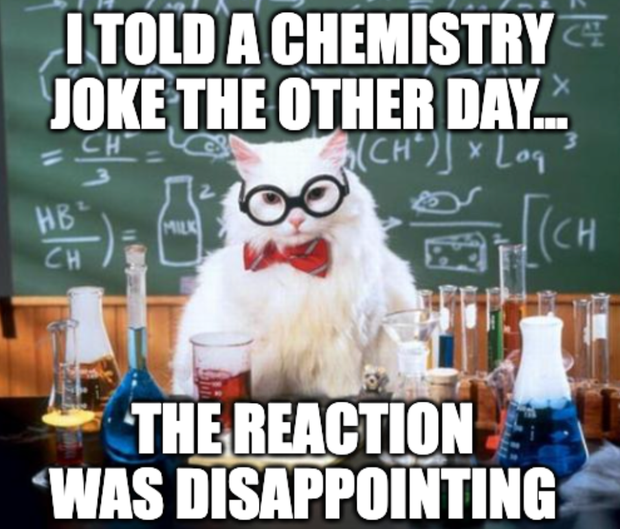
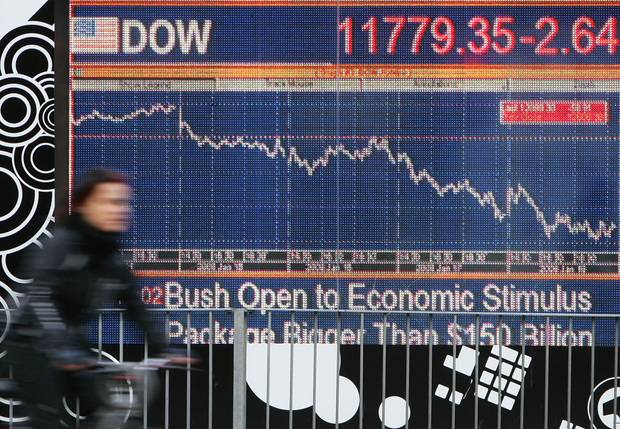

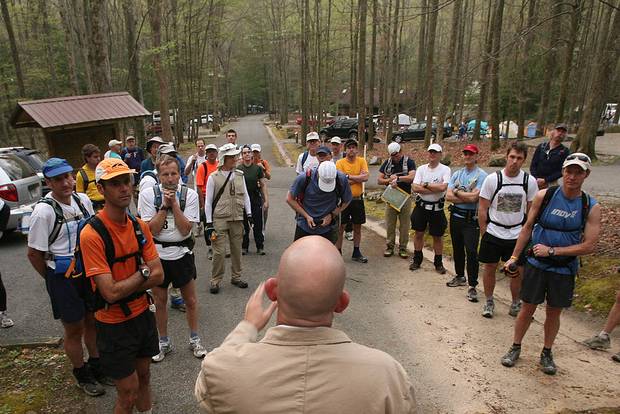
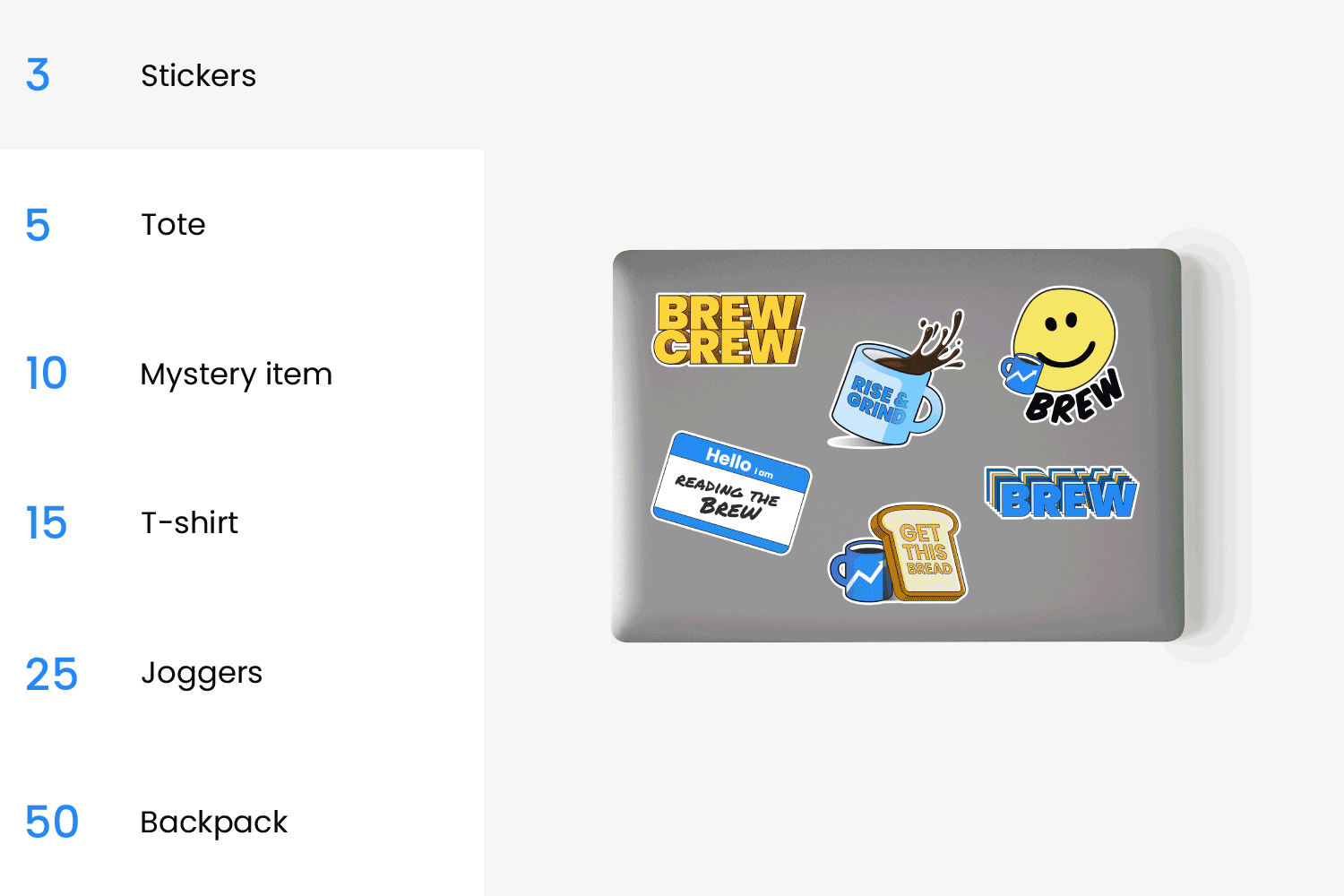

No comments:
Post a Comment